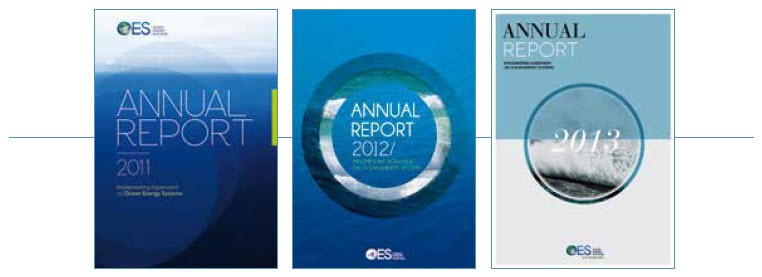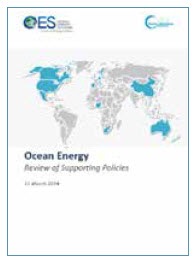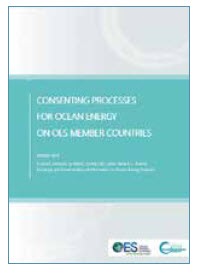Collection and exchange of information
Much of the activities of dissemination are conducted within the Annex I - Review, Exchange and Dissemination of Information on Ocean Energy Systems, which is a mandatory Annex of the OES Work Programme, running since the formation of the OES. The objective of this task is to collate, review and facilitate the exchange and dissemination of information on the technical, economic, environmental and social aspects of ocean energy systems.
ANNUAL REPORT
The Annual Report includes, each year, country reports provided by each member country on ocean energy policies, R&D and technology demonstration. This is intended as the flagship document for OES activities and a marker for industry development. Members ensure that the Annual Report reaches its target audience in the respective countries and its publication is accompanied by a worldwide media release.

|
OCEAN ENERGY: REVIEW OF SUPPORTING POLICIES This report provides an insight into the diverse ocean energy policies across all member countries, focusing on recent developments. Information on policies which support and have impact on ocean energy development was obtained from the OES member delegates.
|
 |
|
|
CONSENTING PROCESSES FOR OCEAN ENERGY ON OES MEMBER COUNTRIES Maritime Spatial Planning (MSP) and Strategic Environmental Assessment have been identified as tools which can support and inform future consenting of ocean energy projects. Some countries are in the process of developing MSP systems and others have already zoned sea areas for marine renewable energy development. The operation of consenting systems will always be influenced to a large extent by national governance structures, given ultimate authority rests primarily with them. Likewise dedicated policies, strategies and incentives for renewable energy introduced by respective governments can have a significant impact on progressing industry development. |
 |
The subject of “Permitting and Licensing” was mentioned as one important topic that the ExCo should address. The present Report prepared under the Annex I addresses the following topics:
- Marine Spatial Planning policies and site selection for ocean energy development
- Regulatory issues and authorities involved in the consenting process
- Environmental impact assessment requirements
- Consultation as part of the licensing process
- Challenges to the consenting process and streamlined licensing processes



